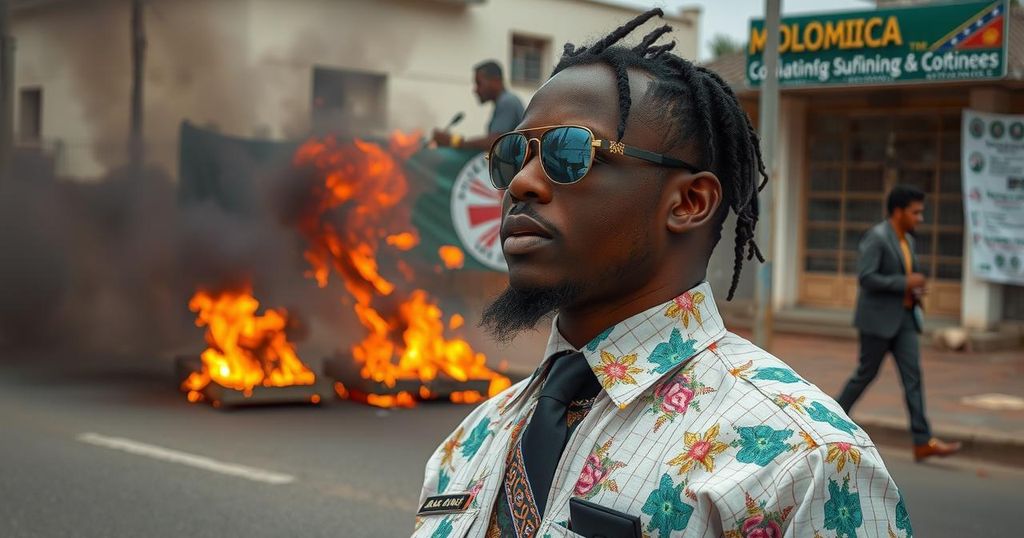Mozambique’s Violence Escalates Following Controversial Election Ruling

Following the ruling that confirmed Daniel Chapo as the winner of the disputed elections in Mozambique, violence has erupted nationwide, resulting in at least 21 deaths, including two police officers. The unrest, primarily led by supporters of losing candidate Venancio Mondlane, has included looting, arson, and clashes with security forces, reflecting deep political tensions within the country.
Mozambique is experiencing significant unrest following the Constitutional Council’s ruling confirming Daniel Chapo as the winning presidential candidate in the contentious elections held on October 9. As a consequence of this decision, violence has surged across the country, resulting in at least 21 fatalities, which includes the deaths of two police officers. The unrest, largely incited by supporters of losing candidate Venancio Mondlane, has also seen hundreds engage in looting and riots in major cities such as Maputo and Beira.
Reports from Mozambique’s Interior Minister Pascoal Ronda indicate that within a mere 24 hours after the court’s announcement, there were 236 documented acts of violence. Ronda detailed that 13 civilians and 12 police personnel sustained injuries during these clashes. The violent protests are characterized by widespread arson, with 25 vehicles, including police cars, set ablaze and attacks on police subunits and a penitentiary resulting in the escape of 86 inmates.
As tensions had been mounting in the lead-up to the court’s ruling, the announcement fuelled immediate protests. Young supporters of Mondlane are reportedly calling for a national “shutdown” as violence continues to escalate. The situation remains volatile, with Mozambique’s 34 million inhabitants reflecting the turmoil of a political crisis that has claimed over 150 lives since the announcement of the initial election results.
Eyewitnesses and footage circulating on social media depict chaotic scenes of looting and destruction, highlighting the dire state of public order in the affected regions. In light of these circumstances, it is anticipated that further unrest may result as the populace grapples with the aftermath of the election outcome and resultant violence.
The unrest in Mozambique is rooted in the recent electoral process, where contentious results led to disputes regarding the legitimacy of the presidential winner. Following the elections on October 9, the Frelimo party’s Daniel Chapo announced his victory, prompting protests from supporters of the opposition candidate, Venancio Mondlane. With the Constitutional Council’s ruling only exacerbating tensions, the aftermath saw a significant rise in violent confrontations between police and demonstrators, raising concerns about the stability of the nation.
The violence in Mozambique, which has claimed at least 21 lives following the controversial election court ruling, underscores the fragility of political stability in the country. The surge in unrest, characterized by attacks on public property and violent confrontations between civilians and security forces, illustrates broader societal grievances towards the electoral process. As the situation develops, it remains critical for authorities to address the underlying issues that have led to this turmoil.
Original Source: abcnews.go.com







